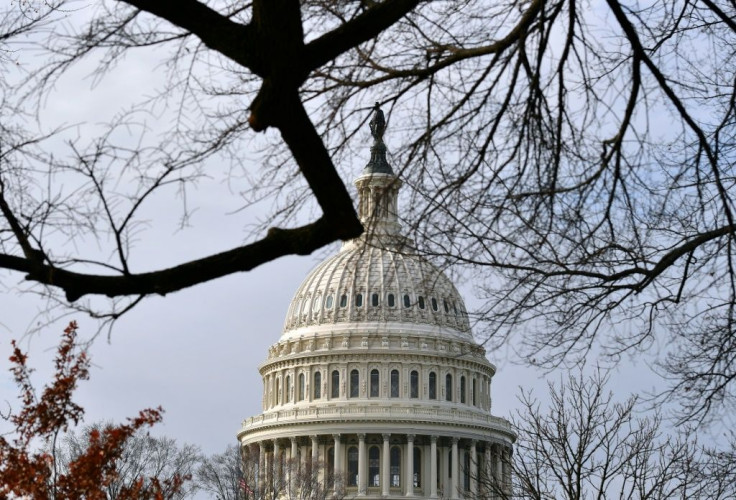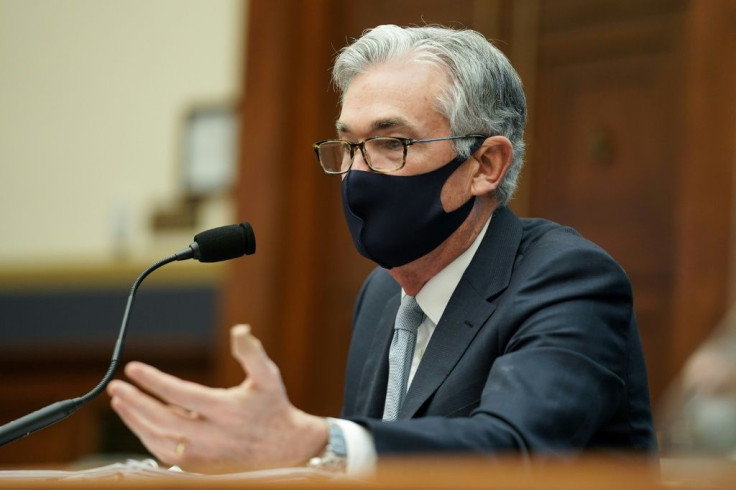Congress Nears US Spending Deal, Fed More Upbeat On Outlook
Congressional leaders on Wednesday said they were nearing a long-awaited agreement on a stimulus package for the US economy as the Federal Reserve cautioned that the economic outlook remains uncertain.
A government relief package to aid struggling businesses and jobless workers is seen as essential in getting the world's largest economy back on its feet amid a resurgence of Covid-19 infections, even as new vaccines offer hope that life can return to normal.
"The case for fiscal policy right now is very strong. I think that is widely understood," Fed Chair Jerome Powell told reporters following the central bank's two-day policy meeting, noting the year-end expiration of expanded jobless benefits and eviction moratoriums.
Despite months of negotiations, lawmakers in Washington have failed to break an impasse over a new package to follow the $2.2 trillion CARES Act, which provided aid to businesses and expanded benefits to workers hurt by the pandemic who would not normally be eligible for regular jobless payments.
Signs of compromise came after a bipartisan group of legislators floated an option with a smaller price tag that excluded contentious provisions like aid for state and local governments and liability protection for businesses from Covid-related lawsuits.

The package is expected to include another round of direct payments to American taxpayers, and legislators could attach the relief bill to a spending plan that keeps the government operating beyond the end of its current funding, which expires at midnight Friday.
Early Wednesday, Republican Senate Majority Leader Mitch McConnell said that legislative leaders "made major headway toward hammering out a targeted pandemic relief package that would be able to pass both chambers with bipartisan majorities."
"We committed to continuing these urgent discussions until we have an agreement, and we agreed that we will not leave town until we've made law," he said.
The progress comes as government data shows retail sales dropping sharply in November, which together with slowing employment gains, a resurgent wave of coronavirus infections and a pandemic death toll north of 300,000 in the US has increased fears of another economic downturn.

"We are close to an agreement. It's not a done deal yet, but we are very close," top Senate Democrat Chuck Schumer said.
President-elect Joe Biden welcomed the progress but said it is not enough.
"The stimulus package is encouraging. It looks like they're very, very close. And it looks like there's going to be direct cash payments," he told reporters at an event in Wilmington where he introduced more of his cabinet picks.
But Biden, who will take office January 20, called the deal only "a down payment, an important down payment on what's going to have to be done in the end of January into February."
Powell declined to comment on the specifics of a new relief package but said the aim is to provide a financial bridge over the "chasm that was created by the pandemic," which cost millions of people their jobs, some of whom now face losing their homes.
"You see... millions of Americans are waiting in food lines in their cars these days all over the country. We know there is need out there."
News about vaccines offers hope that business activity can return to normal with a strong rebound in the second half of the year, Powell said, but he warned that "the outlook for the economy is extraordinarily uncertain."
The 17 members of the central bank's Federal Open Markets Committee (FOMC) also offered a slightly better forecast for growth and employment for the next two years.
The committee pledged to keep the lending rate at zero and keep its bond-buying program going at least at its current pace of $120 billion per-month until the Fed achieves its policy goals of "maximum employment and inflation at the rate of two percent."
© Copyright AFP 2024. All rights reserved.





















